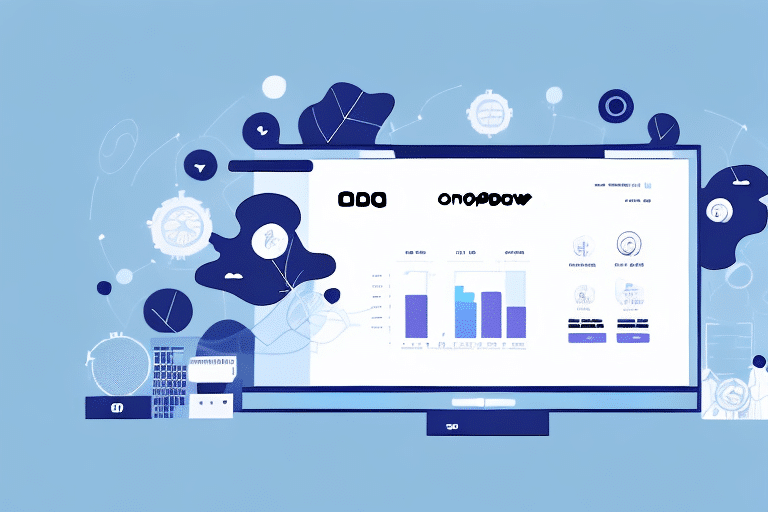Understanding Odoo ERP System for E-Commerce Businesses
In today's competitive e-commerce landscape, businesses must adopt efficient processes and seamless operations to stay ahead. Implementing an Enterprise Resource Planning (ERP) system tailored for e-commerce is a strategic move to achieve this. Among the various ERP solutions available, the Odoo ERP System has gained significant popularity due to its comprehensive features and customizable nature.
What is Odoo ERP System and How Does It Work?
Odoo ERP System is a suite of integrated applications designed to manage various business operations, including inventory management, sales, accounting, project management, and more. Unlike standalone software, Odoo offers end-to-end functionality, enabling e-commerce businesses to streamline their processes and enhance productivity.
Odoo operates by integrating different modules, each providing specific functionalities. For example:
- Inventory Management: Tracks stock levels, manages order fulfillment, and monitors supply chain operations.
- Sales Management: Handles online orders, invoicing, and customer relationship management.
- Accounting: Manages financial transactions, generates reports, and ensures compliance.
Additionally, Odoo offers extensive customization options, allowing businesses to add or remove modules, modify workflows, and create custom reports tailored to their unique requirements. Being cloud-based, Odoo ensures that businesses can access their data and applications from anywhere, at any time, using any internet-connected device.
Benefits of Implementing Odoo ERP for E-Commerce
Implementing Odoo ERP brings several advantages to e-commerce businesses:
- Improved Efficiency and Productivity: By automating processes and reducing manual interventions, businesses can significantly enhance their operational efficiency.
- Enhanced Visibility and Control: Real-time data and analytics provide businesses with better insights into their operations, facilitating informed decision-making.
- Scalability: Odoo is designed to support growing businesses, making it easy to scale operations as needed.
- Cost Savings: Automation and optimized resource management lead to reduced operational costs over time.
According to a Gartner report, businesses implementing ERP systems like Odoo experience an average productivity increase of up to 20%.
Key Features of Odoo ERP for E-Commerce
Odoo ERP stands out due to its versatile and flexible features tailored for e-commerce businesses:
- Inventory Management: Efficiently manages stock levels, reduces wastage, and optimizes the supply chain.
- Sales Management: Streamlines online order processing, invoicing, and customer interactions.
- Accounting: Facilitates comprehensive financial management, including invoice generation and payment processing.
- Project Management: Enables effective project planning, task assignment, and team collaboration.
- Marketing Automation: Supports targeted marketing campaigns with email marketing, social media integration, and lead management.
These features empower e-commerce businesses to manage their operations seamlessly, enhance customer experiences, and drive growth.
Odoo Modules for E-Commerce Operations
Odoo offers a range of modules that cater to different aspects of e-commerce operations:
- Inventory Management
- Sales Management
- Accounting
- Project Management
- Manufacturing
- E-Commerce
- Purchase Management
- Customer Relationship Management (CRM)
- Point of Sale (POS)
The E-Commerce Module is specifically designed to manage online stores, offering features like product management, order processing, payment gateway integration, and shipping management. Similarly, the CRM Module helps businesses maintain and enhance customer relationships by tracking interactions, managing sales pipelines, and improving customer engagement.
Selecting the Right Odoo Modules for Your E-Commerce Business
Choosing the appropriate Odoo modules depends on various factors, including your business size, operations, and industry-specific needs. Consider the following when selecting modules:
- Identify Business Needs: Determine what functionalities are essential for your operations.
- Evaluate Features: Assess the features and capabilities of each module to ensure they align with your requirements.
- Budget Considerations: Ensure that the modules fit within your financial constraints.
- Integration Capabilities: Choose modules that seamlessly integrate with each other to maintain workflow efficiency.
Furthermore, consider the level of customization each module offers. Selecting modules that can be tailored to your specific needs will provide greater flexibility and functionality.
Customizing Odoo ERP for Enhanced E-Commerce Operations
One of the primary advantages of Odoo ERP is its high degree of customization, allowing businesses to tailor the system to their unique requirements. Customization options include:
- Adding Custom Fields: Capture specific data relevant to your business processes.
- Creating Custom Reports: Generate reports that provide insights tailored to your business needs.
- Integrating Third-Party Applications: Enhance functionality by integrating with other tools and applications.
- Modifying Workflows: Streamline operations by customizing workflows to fit your business processes.
For instance, an e-commerce business can customize its order fulfillment process to include automated customer notifications once an order is shipped, thereby improving customer satisfaction and reducing inquiry volumes.
Integrating Odoo ERP with Your E-Commerce Platform
Seamless integration between your existing e-commerce platform and Odoo ERP is crucial for streamlined operations. Follow these steps to ensure successful integration:
- Identify Data to Integrate: Determine which data points (e.g., inventory, orders, customer information) need synchronization.
- Choose Integration Method: Decide between using an API or middleware based on your technical requirements.
- Select Third-Party Applications: Identify any additional applications that need to be integrated.
- Develop and Test: Implement the integration and conduct thorough testing to ensure functionality.
It's advisable to work with experienced developers who specialize in both your e-commerce platform and Odoo ERP to facilitate a smooth integration process. Successful integration leads to enhanced data management and operational efficiency.
Overcoming Challenges in Implementing Odoo ERP
Implementing an Odoo ERP system can present several challenges:
- Technical Complexity: Integrating and customizing the system may require advanced technical skills.
- Resistance to Change: Employees may be hesitant to adopt new systems and workflows.
- Resource Constraints: Limited budget or lack of expertise can hinder implementation efforts.
- Integration Issues: Ensuring compatibility with existing systems can be challenging.
To mitigate these challenges:
- Partner with Experts: Collaborate with experienced Odoo implementation partners to navigate technical complexities.
- Provide Training: Educate employees on the benefits and usage of the new system to reduce resistance.
- Conduct Cost-Benefit Analysis: Understand the long-term benefits to justify the initial investment.
- Ensure Thorough Testing: Rigorously test integrations to identify and resolve issues early.
Best Practices for Maximizing Odoo ERP in E-Commerce
To fully leverage the capabilities of Odoo ERP, consider the following best practices:
- Regular Maintenance: Keep the system updated to benefit from the latest features and security patches.
- Employee Training: Continuously train staff to effectively use the system's functionalities.
- Utilize Analytics: Make use of built-in analytics and reporting tools to gain actionable insights.
- Customize Wisely: Tailor the system to meet specific business needs without overcomplicating workflows.
Additionally, regularly reviewing and optimizing your business processes within Odoo can lead to further efficiency gains and profitability enhancements. Engaging with Odoo consultants or experts can provide valuable guidance in this endeavor.
Case Studies: Successful Odoo ERP Implementations in E-Commerce
Several e-commerce businesses have successfully implemented Odoo ERP, leading to significant operational improvements:
- iPad Rehab: Based in Kentucky, this company specializes in repairing Apple products. After implementing Odoo ERP, they experienced enhanced inventory management and streamlined shipping operations.
- Spongellé: A Los Angeles-based bath sponge retailer, Spongellé saw improvements in supply chain management and inventory tracking post-implementation.
- Dutch Label Shop: This custom clothing label manufacturer from the Netherlands benefited from optimized production processes and enhanced customer management through Odoo ERP.
These case studies highlight the versatility and effectiveness of Odoo ERP in addressing diverse operational challenges within e-commerce businesses. Common benefits observed include improved inventory management, streamlined production workflows, better customer relationship management, and optimized supply chain operations, all contributing to reduced costs and increased customer satisfaction.
Conclusion
Odoo ERP System offers e-commerce businesses a comprehensive and flexible solution to streamline operations, enhance productivity, and drive growth. Its customizable nature and robust feature set make it adaptable to various business needs, allowing companies to scale effectively as they grow. However, successful implementation requires careful planning, technical expertise, and adherence to best practices. By partnering with experienced implementation partners and continuously optimizing business processes, e-commerce businesses can fully harness the potential of Odoo ERP to achieve sustained success.






















